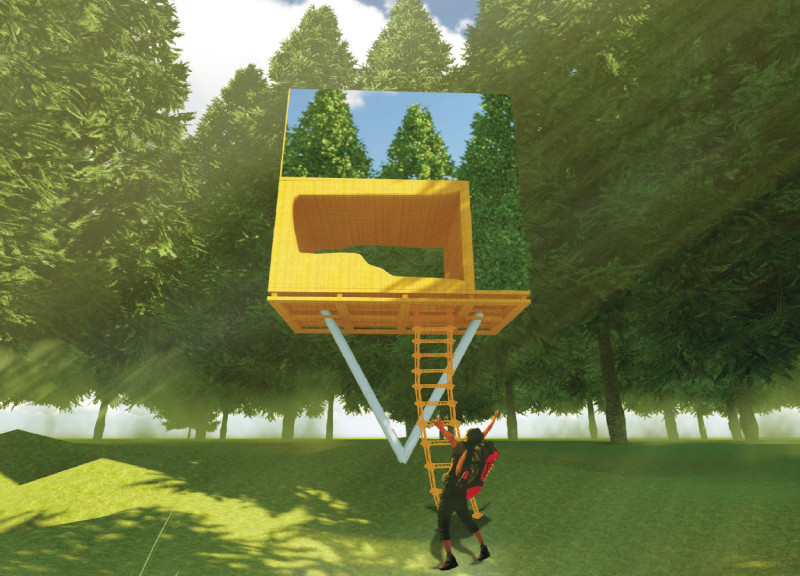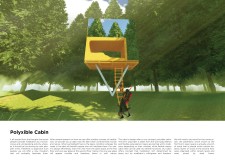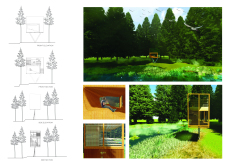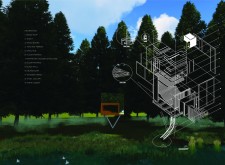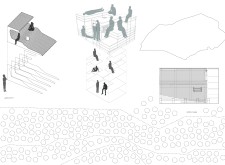5 key facts about this project
The Polyxible Cabin is a meditation retreat located by a calm lake, designed to enhance the experience of mindfulness and relaxation. The setting captures the tranquil qualities of nature, supporting the purpose of the space. The design concept aims to change the perception of meditation, transforming it from a routine task into an engaging journey. By merging human activity with the environment, the cabin offers a flexible space that meets the varied needs of its users.
Spatial Organization
The cabin showcases an open layout on the first floor that strengthens the connection between indoor and outdoor spaces. Large windows offer unobstructed views of the lake and allow light to fill the interior. This layout encourages users to immerse themselves in the peaceful surroundings, reinforcing the goal of promoting a meditative atmosphere.
Materials and Structure
The construction of the cabin primarily uses wood and a steel frame, chosen for their durability and aesthetic appeal. The wooden elements follow a parametric design, with pieces arranged in a thoughtful manner to create an engaging visual effect. This design approach enhances both the appearance and functionality of the space, allowing for various meditation practices.
Design Features
A notable feature of the cabin is the use of one-way glass on the second floor. This glass provides privacy while still enabling views of the lake, maintaining a connection to the natural world. The transparency of this section invites light into the space, creating an open feel. Additionally, the wooden layers on the upper level are placed at different heights, adding depth and complexity to the design while allowing the space to adapt to different uses.
These design elements work together to respond to the growing interest in meditation and wellness. The combination of wood, light, and views creates a welcoming atmosphere that encourages engagement with nature, supporting a renewed focus on meditation within the context of modern living.


